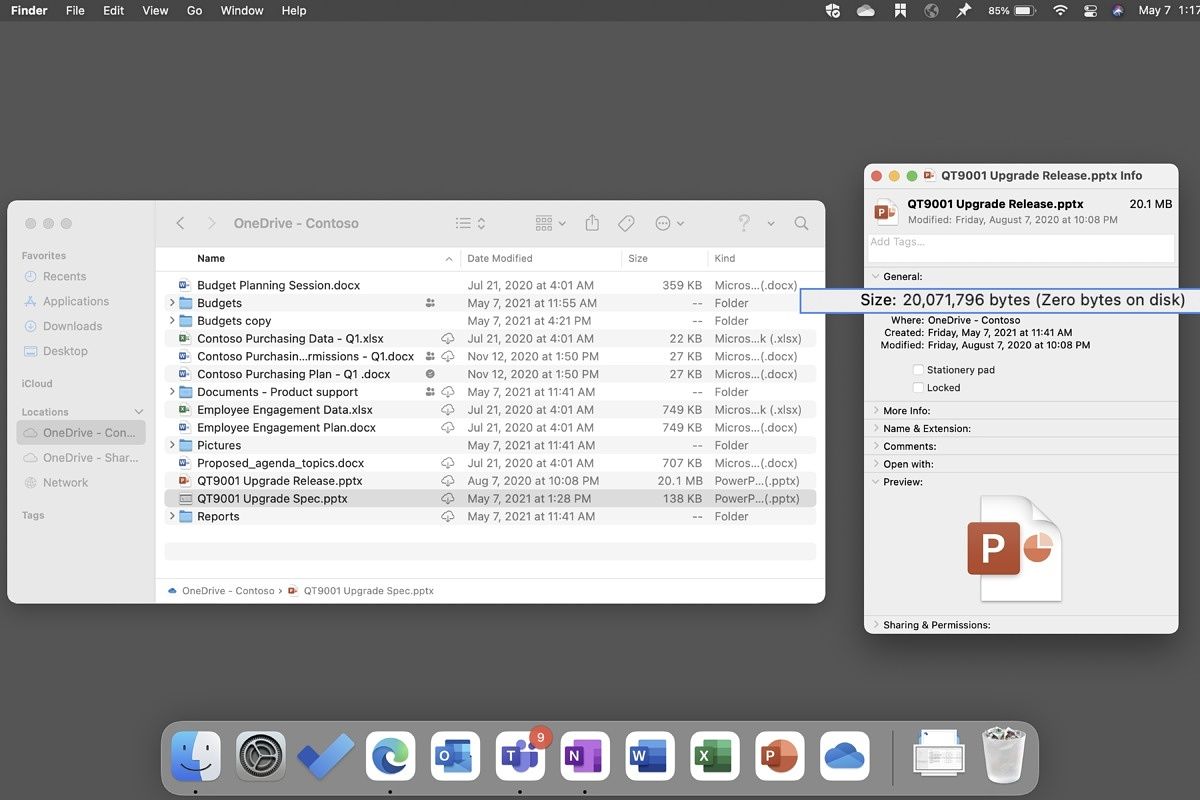Microsoft has announced that it's bringing support for Apple M1 processors in its OneDrive app for Mac. The announcement comes alongside a bunch of other improvements to the service. These include support for known folder move, improved Files On-Demand, and more.
Since Apple released its first Apple M1-powered Macs last October, it's important for some apps to be able to run natively on the new architecture. Microsoft itself has updated many of its apps to do just that, and OneDrive will be joining the fray later this year. Microsoft didn't give a specific date for it, though. In the meantime, OneDrive still works on M1 Macs through Rosetta 2.
New sync features for macOS
But that's just the tip of the iceberg for today's news. Microsoft also announced that it's adding support for Known Folder Move on macOS. This tool, already available on Windows, moves all files in a known folder to OneDrive. This means those files are always accessible, even if the user resets the PC or it stops working. This will be available for all Mac users, and organizations can enroll in a private preview to get early access.
Another improvement is for the Files On-Demand feature. Files On-Demand makes your OneDrive files available in the Finder app, just like your local storage. However, these files aren't always stored on your PC. With an upcoming update, Microsoft is adding new icons to make it easier to see which OneDrive files are available online, locally, or both.
For organizations, Microsoft also announced sync admin reports, which let IT admins see if devices in the organization are syncing properly to OneDrive. This includes information about which devices are suing Known Folder Move and whether they're using the latest OneDrive client. Microsoft also recently rolled out a feature to block specific file types from syncing with OneDrive.
Finally, Microsoft says it's also improving the performance and reliability of OneDrive for Mac. Last month, updates helped reduce the CPU usage by as much as 40%, and more improvements are on the way. Those using OneDrive on M1 Macs can probably expect even more improvements once native support is rolled out.
Outside of macOS, Microsoft also announced today that it will enable offline file editing on iOS later this month. Users can mark files for offline use in the OneDrive app, then edit them in the respective Office app, even without internet.


